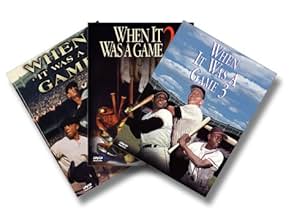So far, HBO has made three installments of "When It Was a Game" and I've seen all of them. The second one seems to have a lot more in common with the first than the third. This is because the third only focuses on the 1960s, whereas the other two cover the 1920 to the very early 60s. Plus, like the first, "When It Was a Game 2" has many different topics and not as plot-driven as the third. None of this is meant as criticism--just a description.
As I mentioned above, there are lots of different topics in this installment. They are accompanied by lots of home movies of ballplayers and ballgames (mostly in color but a few in black & white--the only ones in the series) and you never see any of the many narrators. Among the topics included the Pacific Coast League, Moe Berg and his spy duties for the US government during his trips to pre-war Japan, the so-called 'second division' teams, the Brooklyn Dodgers and their leaving Brooklyn (oddly, the Giants leaving New York was not mentioned!) and the Yankees.
As with all of the films, there is an epic and almost reverential quality about the documentary as folks wax VERY lyrical and philosophical about the game. I enjoyed most of it but a few odd things I noticed were that the ball players were only occasionally identified, too many shots of the actor/ball player Chuck Connors (he only (he only played 67 major league games!) and Elston Howard as well as the strange comment by Billy Crystal. Still, well worth seeing if you are a baseball freak or casual fan.















